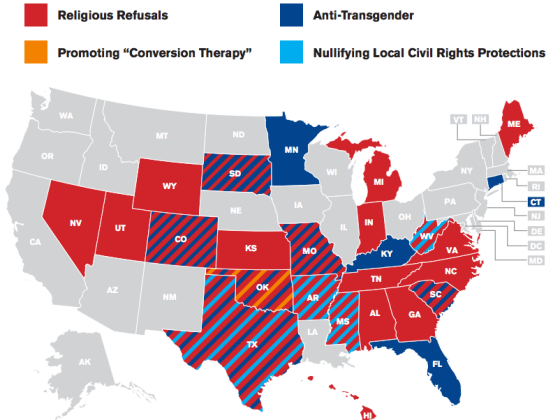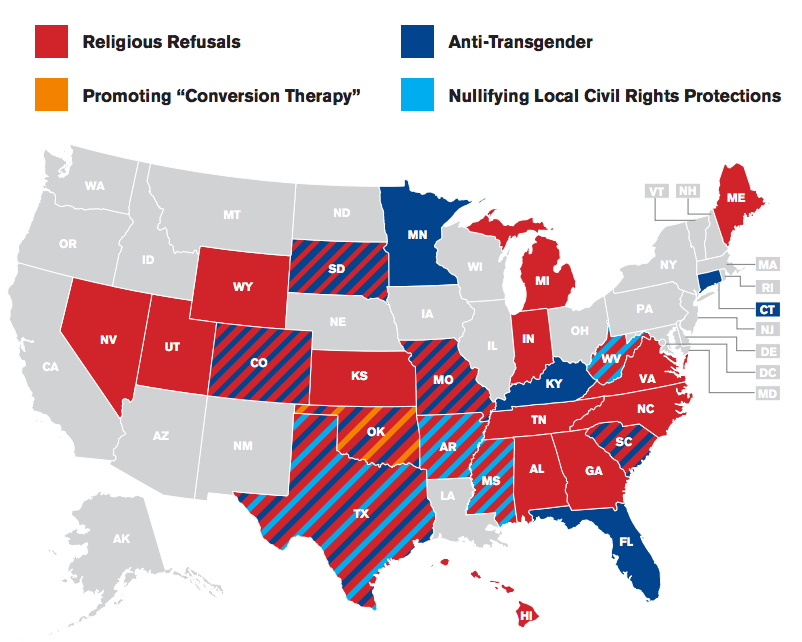WHEN I WAS A KID, the Civil Rights era seemed impossibly far away. I’d been born in the 80’s, twenty years after the Civil Rights and Voting Rights Acts, and even though my parents could tell me stories about life before those laws passed, I couldn’t conceive of things having changed just so much in the course of a single lifetime.
I’m only 28 now, and I’ve since seen such a major change easily within the course of my lifetime. At the beginning of 2004, not a single state allowed same-sex marriage. Now, as of this writing in 2015, same-sex marriage is legal in 37 states and Washington, DC. The feeling of having lived through such a rapid change is pretty awesome, and I’m now confident that I’ll see the other 13 states (including my home state of Ohio, which is embarrassingly behind the times) follow suit well before I shuffle off this mortal coil.

